Dennett on Consciousness: A Comprehensive Examination
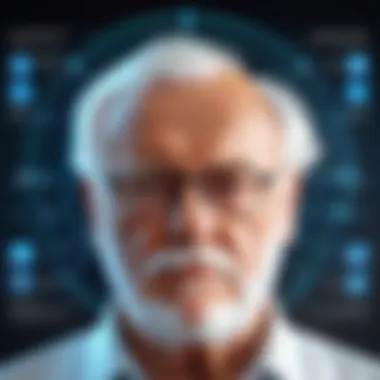
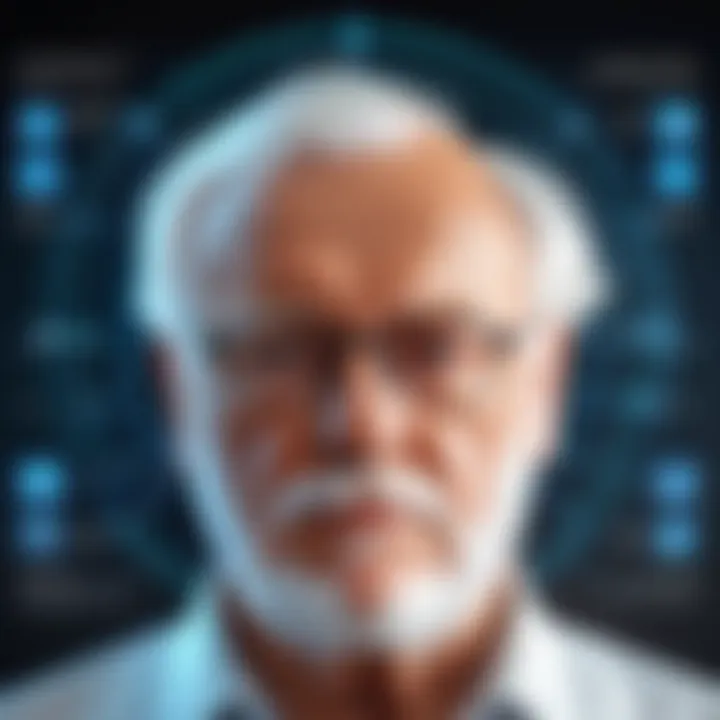
Intro
Daniel Dennett's exploration of consciousness raises profound questions about the nature of the mind, the essence of self-awareness, and how these concepts intersect with technology, philosophy, and biology. His ideas challenge us to reconsider what it means to experience consciousness, not just in humans but also in artificial intelligence systems and evolutionary contexts. This exploration serves as a foundation for understanding not only the workings of our own minds but also the potential consciousness-like processes in machines.
Dennett, known for his accessible approach to complex philosophical themes, invites readers to navigate through his theories that blend cognitive science with philosophical inquiry. As we dive into his work, we shall unpack significant frameworks laid out by Dennett, critically examine his critics, and address the implications these theories hold for current societal discussions surrounding consciousness, technology, and our relationship with machines.
Engaging with Dennett's insights is not merely an academic task; it offers practical considerations for contemporary challenges, markedly how we perceive intelligence—biological and artificial alike. This narrative will serve readers who seek clarity in the tangled web of consciousness, providing them with both a comprehensive understanding and stimulating insights into Dennett's influential views.
The Significance of Consciousness in Philosophy
Understanding consciousness is one of the most intricate puzzles in philosophy. It not only connects to how we perceive our own existence but also informs a variety of disciplines, from cognitive science to artificial intelligence. Consciousness affects everything, shaping our beliefs, identities, and experiences.
The topic of consciousness digs into queries about personal identity, the nature of reality, and the boundaries of knowledge. That's vital since it questions what it means to be aware and how this awareness influences our understanding of the world and ourselves. In this context, philosophers like Daniel Dennett provide frameworks to analyze these profound questions, challenging traditional notions and presenting fresh perspectives.
Defining Consciousness
Defining consciousness may seem straightforward on the surface. After all, we all experience it daily. Yet, philosophers have struggled to pin down its essence. Is it merely the experience of being awake and aware? Or is it a more complex interplay of thoughts, emotions, and perceptions?
Dennett suggests that consciousness isn't a single entity but should be understood through different processes interacting. In his view, definitions ought to focus on behaviors, interpretations, and the ways we interact with other beings and our environment, rather than trying to capture some abstract core. This pragmatic approach sheds light on how consciousness manifests in everyday actions and thoughts.
For instance, when someone recalls a vivid memory, they aren't just accessing a static piece of data; rather, they're weaving together sensory information, emotions, and personal history into a complex tapestry of thought. This interpretation helps bridge the gap between subjective experiences and objective analysis.
Historical Perspectives on Consciousness
The exploration of consciousness isn't a new endeavor. It stretches back to ancient philosophers like Plato and Aristotle, who pondered the nature of the mind and its relation to the body. The Renaissance ignited renewed interest, as thinkers such as Descartes introduced the mind-body dualism, asserting that the mind and body are fundamentally distinct.
Moving into the Enlightenment, philosophy and science began intertwining, laying groundwork for modern discussions. Kant, for instance, introduced notions of transcendental idealism that explored how human perception shapes our understanding of reality. In the 20th century, shifts in scientific understanding led to more empirical examinations of consciousness, with figures like Dennett emerging to challenge established norms.
Today, a historical perspective reveals how our comprehension of consciousness has evolved, shaped by cultural shifts, technological advancements, and interdisciplinary dialogues. By examining this historical path, one can appreciate the complexity of consciousness and why it's central to philosophical inquiry.
"To be is to be perceived; consciousness and perception are intimately linked in the ongoing inquiry about existence."
Understanding the significance of consciousness in philosophy provides a critical lens for examining humanity—its challenges, its evolution, and its place within the universe.
Daniel Dennett: An Overview
In this section, we delve into the life and philosophical endeavors of Daniel Dennett. Understanding his background is crucial to grasping the intricacies of his thoughts on consciousness. Dennett stands out as a towering figure in contemporary philosophy and cognitive science, with his contributions shaping discussions on the mind, consciousness, and artificial intelligence. His unique blend of philosophy, science, and storytelling makes his ideas accessible yet profoundly deep, invoking critical reflections on the nature of our own awareness and experience.
Biographical Context
Daniel Clement Dennett was born on March 28, 1942, in Boston, Massachusetts. Growing up in a family with intellectual inclinations, it is perhaps unsurprising that Dennett found himself gravitating towards the realm of philosophy. His academic journey took him through prestigious institutions, ultimately earning his doctorate from the University of Oxford. What follows is a life dedicated not just to academic pursuits but to engaging the public in thoughtful discussions about what it means to be conscious.
His career has been marked by an ability to traverse multiple disciplines—from philosophy and psychology to neuroscience. This interdisciplinary approach allows him to analyze consciousness through a wider lens, integrating insights from various fields while exploring how these connections enhance our understanding of the mind.
Dennett’s Philosophical Background
Dennett is often characterized as a materialist and functionalist, embracing the notion that consciousness is not some mysterious substance but rather a series of processes within the brain. He challenges the dualistic views that separate mind from body, arguing instead for a viewpoint that situates conscious experience at the intersection of our biology and our interactions with the world. These philosophies are articulated in several key works, notably Consciousness Explained, where he outlines his framework and introduces concepts that have sparked debates in academic circles.
One critical aspect of Dennett's thought is his stance on free will, which he contends is compatible with determinism—a position that has fueled a myriad of discussions among philosophers. By arguing that humans can have a nuanced understanding of their choices, even in a deterministic universe, Dennett opens exciting dialogues surrounding agency, morality, and how we perceive ourselves as conscious beings.
As we explore Dennett’s ideas, it's essential to consider how his background influences his philosophical framework. His insistence on grounding concepts of consciousness in empirical science makes his theories distinctive, urging thinkers to reconsider traditional notions of the self and awareness. It’s clear that Dennett’s life experiences and scholarly endeavors culminate in a vision of consciousness that is both rich and challenging, pushing the boundaries of what we understand about ourselves.
The Intentional Stance
The concept of the Intentional Stance occupies a critical space in Dennett's framework for examining consciousness. In philosophical discourse, this stance suggests that to understand other beings—particularly those exhibiting behaviors similar to ours—we can treat them as if they have intentions, beliefs, and desires. This perspective proves indispensable when navigating the complexities of cognitive science and theories of consciousness. By adopting this lens, we can decode not just human behavior but also the potential behaviors of artificial intelligences and other entities.
Understanding the Intentional Stance
Delving into the Intentional Stance, it's pivotal to grasp what Dennett means when discussing this concept. At its core, the Intentional Stance involves presupposing that a given entity behaves in ways that are consistent with having mental states. For example, if a dog is barking, we might assume it "wants" to alert us to something or express a need. Here, we are interpreting its actions through a framework of intention.


This model of understanding is not merely whimsical; it is grounded in practical efficacy. To ascribe intention allows us to predict behaviors and responses accurately. Dennett posits that when we confront creatures—human or otherwise—this approach enables us to comprehend actions in a structured manner.
"To view minds as intentional systems is to embrace a level of understanding that transcends mere behavioral patterns."
However, one must stay aware of the limitations this stance may entail. Assigning intentions can sometimes lead us astray, especially when misinterpreting actions of non-human entities, such as a complex machine in a smart home. Thus, while effective, the approach also demands careful consideration to avoid anthropomorphism.
Applications in Consciousness Studies
Moving beyond theory, the Intentional Stance finds a multitude of applications in consciousness research. First and foremost, it shapes how scientists analyze various cognitive processes. In studying animals, for instance, researchers may implement this perspective to uncover underlying cognitive mechanisms. By adopting the Intentional Stance, researchers might suggest that a chimpanzee, which uses a stick to retrieve termites, is acting systematically with a goal in mind—an insight that opens avenues for understanding primate cognition.
Moreover, the application extends into realms like artificial intelligence, where entities are increasingly designed to simulate human-like responses. By considering these systems as intentional agents, developers can enhance the nuances of interactions in AI. Take personal assistants like Siri or Alexa, for instance—they respond to commands as though they truly understand the user’s intent, enabling seamless communication. While they lack consciousness as we understand it, viewing them through the Intentional Stance allows users to engage with them in a more relatable way.
In summary, the Intentional Stance is not just a philosophical abstraction; it's a potent tool that allows us to navigate and understand consciousness itself, be it in humans, animals, or machines. By wrapping our heads around this concept, we confront the essentials of intentionality that define the cognitive experiences across various entities—ultimately enriching the scope of consciousness studies.
Consciousness as a User-Illusion
In this section, we delve into the intriguing notion of consciousness as a user-illusion, a fundamental aspect of Daniel Dennett's philosophical framework. This perspective fundamentally alters our understanding of self-awareness and what it means to experience consciousness. By considering consciousness as an illusion—essentially a construct of our cognitive processes—we begin to unravel the layers of perception that shape our understanding of the world.
Exploring the User-Illusion Concept
Dennett's idea rests on a simple yet profound premise: what we perceive as consciousness is not a singular entity but rather a series of mental processes that give rise to our experience of self. He likens consciousness to a hologram, where the full picture is only projected by a series of fragmented inputs from our senses and cognitive functions.
Consider this: when driving a car, one doesn’t consciously think through every action��—accelerating, braking, steering. Instead, the mind merges these actions into a seamless experience. Dennett argues that what you're experiencing is not a cohesive flow of self-aware thoughts but an intricate interplay of mental processes that masquerade as a unified consciousness. This perspective provides a lens through which to examine various phenomena, including memory, perception, and decision-making.
Key Elements of the User-Illusion:
- Fragmentation of Experience: Our conscious awareness is pieced together from disparate sensory inputs, often in a non-linear fashion.
- Construct of the Mind: What one perceives as self-awareness is actually a mental narrative created in real-time.
- Cognitive Limitations: Just like a user interface hides complexity, consciousness simplifies the underlying processes that inform our thoughts and actions.
This concept doesn’t just challenge our notions of self; it opens a Pandora's box of potential inquiries into how artificial intelligence might one day replicate or simulate consciousness through similar mechanisms.
Implications for Self-Awareness
The implications of understanding consciousness as a user-illusion are far-reaching, particularly regarding self-awareness. If consciousness is merely an illusion, then the very notion of a self—something we inherently assume to be constant and coherent—comes under scrutiny.
In practical terms, this can shift our approach to mental health and cognitive studies. For instance, consider individuals with dissociative disorders who may experience a fragmented sense of self. Dennett's view encourages a re-assessment of what constitutes normal consciousness and opens discussion on cognitive therapies aimed at integrating these fragmented experiences.
Moreover, it raises questions about how we interact with technology. If consciousness is a construct, can AI systems, designed to replicate human-like responses, also be said to be 'aware' in any meaningful sense? This taps into ongoing debates in cognitive science, prompting a closer examination of how consciousness interfaces with the digital realm.
"The self is not a passive observer of its thoughts, but an active participant in their creation."
Thus, rethinking consciousness as a user-illusion nurtures a richer dialogue about personal identity and the nature of experience. It reveals that who we think we are might just be a byproduct of intricate cognitive mechanisms, leading us toward a deeper understanding of our existence—or perhaps, our illusion.
Multiple Drafts Model
Daniel Dennett's Multiple Drafts Model represents a significant twist in the understanding of consciousness, challenging traditional notions with its unique approach. This model directly addresses the complexities of how human beings experience consciousness, suggesting that rather than a single narrative stream, there are many ‘drafts’ of experiences that vie for attention. This perspective shifts the focus from a centralized, coherent self to a more decentralized understanding of awareness.
Framework of the Multiple Drafts Model
At the heart of the Multiple Drafts Model lies the comparison between mental processes and the editing workflow in a writing scenario. Think of your mind as a word processor where various drafts are generated simultaneously. Each 'draft' reflects a different aspect or interpretation of the stimuli we encounter. Dennett posits that all these drafts are produced parallelly, and they don't have to conform to a single, unifying narrative. Instead, they compete for priority in our conscious experience.
Denoting consciousness as a form of narrative construction, Dennett emphasizes that these drafts don't go through a typical linear editing process. Instead, at various moments, certain drafts are elevated to 'awareness,' almost like a highlights reel of your mental playbacks. This approach has profound implications. For instance:
- Fragmentation of Experience: Our perception of reality could be more fragmented than we typically acknowledge. Every moment is, in essence, a collaboration between multiple experiences.
- Dynamic Editing: Consciousness can be seen as dynamic, adapting not only as we receive new information but also as we reinterpret past narratives based on fresh insights.
- Multi-Tasking Mind: The mind can juggle several ideas and perceptions simultaneously without necessitating them all to merge into a single thread of thought.
This model promises to enrich our understanding of consciousness, especially in examining complex phenomena like memory, perception, and thought. It certainly stirs the pot, questioning the very structure of what we consider our inner monologue.
Comparison with Traditional Views
In traditional views of consciousness, the narrative that unfolds is often depicted as linear and cohesive—a single story told from a particular viewpoint. This has its roots in the Cartesian model, which suggests a subject who is aware of themselves in a distinct, unique way.
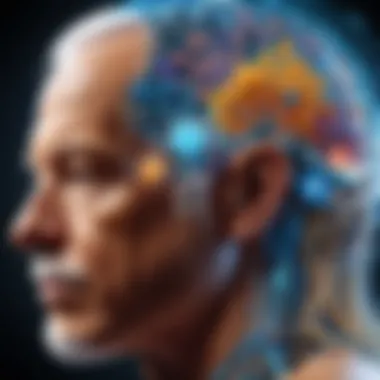
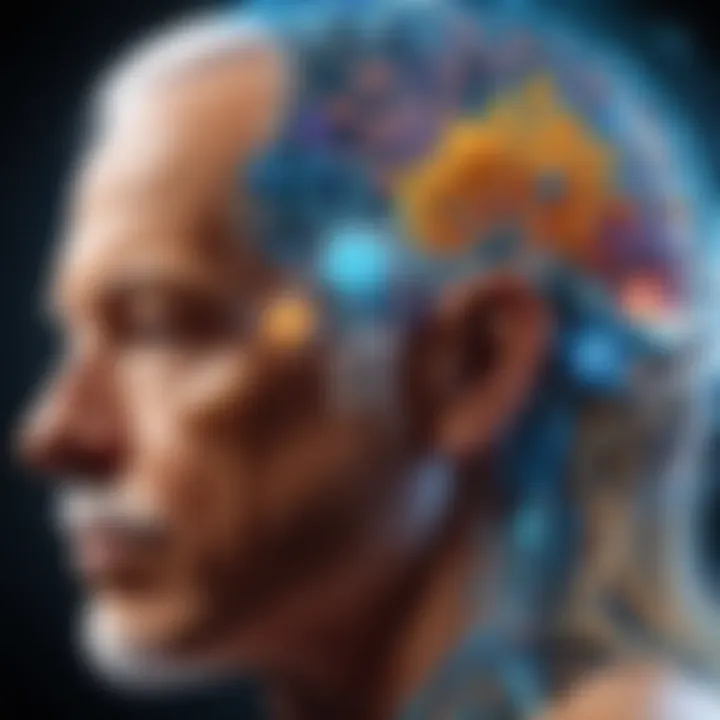
However, Dennett's Multiple Drafts Model diverts from this by arguing that:
- No Unified Self: The notion of a singular, unified self is misleading. Instead, we are a collection of intermingled drafts, each offering a perspective rather than a definitive identity.
- Concurrent Processing: Unlike the linear approach that says we process experiences step-by-step, the Multiple Drafts Model asserts that there is continuous, concurrent processing happening all the time.
- Narrative Construction: The narrative we construct is not pre-determined but rather pieced together from various competing drafts. Awareness is akin to selecting a highlight reel, not producing a linear documentary.
In this light, it becomes evident that understanding consciousness isn't merely about what stories we tell ourselves, but also how these stories are formed, evolved, and contested in the bustling marketplace of our minds. Thus, Dennett provides us with a framework that is more aligned with the chaotic nature of human experience while retaining essential insights into our cognitive processes.
The Role of Narratives in Consciousness
Narratives play a foundational role in how we perceive our consciousness. They shape not just our memories but the very sense of self, intricately weaving our experiences into coherent stories. Daniel Dennett emphasizes that consciousness is not merely a stream of thoughts or sensory inputs; rather, it is this rich tapestry of narratives that gives rise to our awareness. The importance of narratives in understanding consciousness cannot be overstated, as it connects deeply to the processes of identity formation and personal meaning.
Constructing Personal Narratives
The act of constructing personal narratives is essential to our understanding of who we are. Every experience, every choice, and every interaction stitches together a narrative fabric, comprising the essence of our existence. Dennett suggests that these narratives help individuals create a sense of continuity over time. This intrinsic narrative-building process enhances our ability to reflect on past events, give context to our current emotions, and anticipate future experiences.
This construction can be seen in various aspects of life. For instance, consider how a successful achievement can be framed as a turning point in one’s career. That particular moment, when viewed through the lens of a narrative, provides not only a vantage point for personal growth but also creates meaning around the struggles faced along the way. It’s a way for us to make sense out of chaos, turning isolated events into patterned experiences. The anecdote or narrative format also becomes a springboard for sharing our stories with others, allowing connections that deepen the understanding of our shared human experience.
However, it is significant to note that narratives are not static. They evolve with time and context. Someone may view a past failure as a setback early on, only to later interpret it as an essential lesson learned. This fluidity in narrative construction demonstrates that consciousness is dynamic, highlighting the importance of narratives in shaping perceptions but also showcasing the potential for reinterpretation and growth.
Narrative and Identity
The link between narrative and identity forms a crucial pillar in Dennett's examination of consciousness. Essentially, identity is formed through the stories we tell ourselves. Each narrative weaves in elements of who we are, infusing our identities with meaning and depth. If we break it down, the identity can seemingly be viewed as a collection of stories, with each one significant in informing our self-perception and worldview.
This relationship can also be regarded through the lens of how we engage with and present ourselves to others. The narratives we share, whether through social media platforms like Facebook or within personal interactions, shape not only our identity but also how we connect with others. Sharing stories allows for a communion of life experiences, bridging gaps and establishing bonds over shared joys or struggles.
As we navigate our lives, we constantly revise our narratives based on new experiences and changing self-perceptions. This implies that our identity, though it may feel fixed at times, is in fact a construct that can shift based on the contexts and narratives we embrace.
"Narratives serve as the threads that weave our consciousness into the fabric of our identity."
In summary, Dennett’s exploration of consciousness through the lens of narratives provides a nuanced understanding of how individuals construct their identities, interpret experiences, and engage with the world. Recognizing that our consciousness is deeply interlinked with the narratives we create can help ground contributions to discussions surrounding technology, AI, and philosophical inquiries regarding existence and self-awareness.
Critiques and Counterarguments
Critiques and counterarguments form a vital component of philosophical discourse, particularly when discussing Daniel Dennett’s theories on consciousness. Engaging with opposing views offers a chance to refine and strengthen philosophical arguments, pushing the boundaries of understanding consciousness itself. In this section, we will delve deep into the major critiques of Dennett’s views and explore the responses he and his supporters have provided. Such discussions are not merely academic; they speak to the very nature of what it means to be conscious and how one can effectively communicate that state in a framework suitable for both philosophical inquiry and cognitive science.
Major Critiques of Dennett’s Theories
Critics of Dennett often argue that his perspectives fail to sufficiently capture the richness of subjective experience. One primary critique is centered on the idea that Dennett’s model reduces consciousness to mere computational processes. Opponents ask whether labeling consciousness as an user-illusion undermines the depth and intricacies of human experience. For instance:
- Reductionism: Critics believe that Dennett oversimplifies consciousness by likening it to a program running in a computer, thus neglecting the emotive and qualitive aspects of human awareness.
- Subjectivity: Some philosophers contend that Dennett's theories, especially his multiple drafts model, do not account for the first-person perspective essential to understanding consciousness. They argue it's one thing to discuss how consciousness operates externally but quite another to embody the feeling of being aware.
- Scientific Grounding: There are those who question the empirical basis of Dennett’s insights, suggesting that his approach is more philosophical speculation than grounded in rigorous scientific experimentation.
These critiques reflect broader dilemmas in the ongoing debate about what consciousness truly entails and how it should be studied. They challenge Dennett’s adequacy in representing a field that thrives on the subjective experience and complex phenomena of human thought.
Responses to Critiques
In response, Dennett and advocates for his views argue that critiques often misinterpret the core tenets of his philosophy. They emphasize that his models are not meant to be definitive answers but are conceptual tools for better understanding consciousness. Key points of their rebuttal include:
- Pragmatic Approach: Dennett argues that consciousness must be approached in a manner akin to problem-solving in science—hypotheses must evolve. He suggests that results from cognitive science and neuroscience can ultimately inform the philosophy of consciousness.
- Integration of Experience: Supporters contend that Dennett's model allows for the complexity of experience to be encapsulated within a structured format. While it may be computational at its core, it does not negate the emotional and existential nuances that accompany human awareness.
- Evolutionary Context: Dennett proposes that understanding consciousness through an evolutionary lens enriches the discourse, as it provides insight into its functional utility and adaptive nature.
In summary, while critiques of Dennett’s theories present significant challenges, they also afford valuable opportunities for deeper contemplation about consciousness. Indeed, the ongoing dialogue between critics and proponents of Dennett's work reflects the dynamic and ever-evolving nature of philosophical inquiry into the mind.
“Engaging with critique not only sharpens the arguments of the proponent but also broadens the horizons of our collective understanding.”
Intersection with Cognitive Science
Understanding the intersection of Daniel Dennett's theories with cognitive science unveils crucial insights into the nature of human consciousness. Dennett's ideas have not merely floated in philosophical air; they have practical implications that resonate throughout the corridors of cognitive science. This fusion is important not just for theoretical explorations but also for applications in the real world where understanding consciousness can enhance technology and drive further research.
When we consider Dennett's contributions, we see that they spark dialogues that bridge ages of philosophical inquiry with cutting-edge scientific advances. This dialogue creates a fertile ground for not just addressing questions about consciousness but also how we perceive intelligence itself, whether in humans, animals, or artificial counterparts. It drives home the notion that consciousness isn't just an abstract concept but deeply tied to cognition and our interactions with the surrounding world.
Dennett’s Influence on Cognitive Science

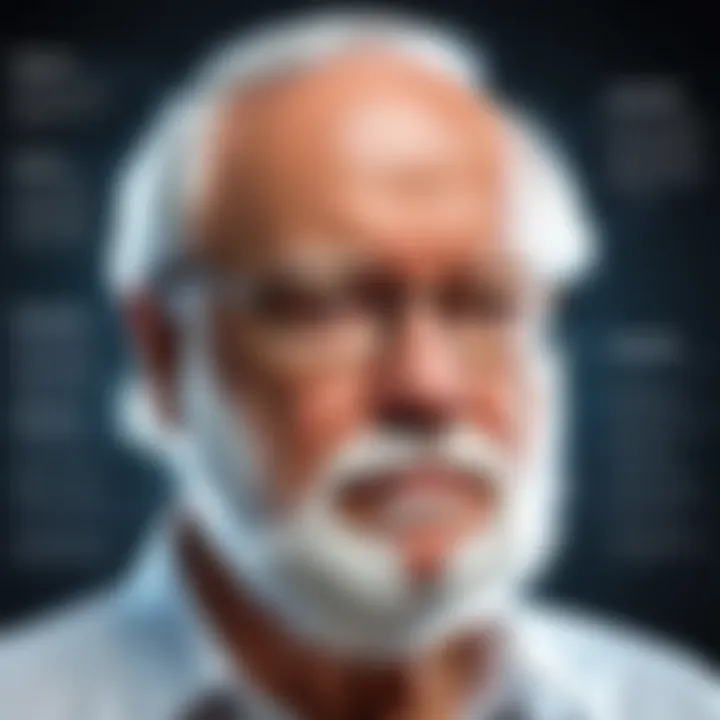
Dennett's influence in cognitive science marks a pivotal point, steering discussions about how mental processes relate to neurological functions. One cannot overlook the significance of his Intentional Stance and Multiple Drafts Model, which offer frameworks that resonates with both cognitive scientists and neuroscientists.
Amid his contributions, Dennett promotes a perspective that sees consciousness not as a singular phenomenon that can be pinpointed but rather as a product of various cognitive processes. His approach acknowledges the complexity of the mind by breaking it down into draft-like structures, where multiple interpretations can occur simultaneously, almost like multiple tabs opened in a web browser, each displaying a different page of our mental experience.
For cognitive science, this understanding is tantamount to shedding light on how perception and decision-making occur. One of the key takeaways is the idea that consciousness itself may not be the source of intelligent action but rather a byproduct of complexity in cognitive processes. This perspective challenges traditional views and propels an exploration of how the brain orchestrates behaviors based on unconscious inputs, all of which has far-reaching implications in understanding mental disorders and enhancing cognitive productivity.
Applications in Artificial Intelligence
The impact of Dennett’s theories extends into artificial intelligence with exciting nuances that prompt both ethical and technological discussions. His philosophical insights push technologists and AI researchers to reconsider what it means to replicate human-like consciousness in machines.
- The Role of Nearly Human Intelligence: Dennett's stance invites a reconsideration of AI as systems that may mimic consciousness without actually possessing it. Many researchers are exploring the boundaries of machine learning, looking into how programming can or cannot create a semblance of human thought.
- Understanding Sensation and Perception: His ideas furnish insights into how machines might process sensory data, potentially paving ways for advancements in neural networks that utilize adaptive strategies emulating human cognition. The notion of user-illusions can be harnessed in algorithms, which could aid AI in predicting user behaviors by modeling how human consciousness perceives and reacts to various stimuli.
- Ethical Considerations: With the lines blurring between human intelligence and artificial constructs, Dennett’s work raises ethical questions around the responsibilities of creating AI systems that seem conscious. Just like humans, should such machines have rights? Where would we draw the line between intelligence and consciousness?
Epilogue
In summary, the intersection of Dennett's philosophical viewpoints with the empirical realms of cognitive science and AI offers a compelling narrative that not only elevates our understanding but also challenges preconceived notions surrounding consciousness. It opens vistas to burgeoning possibilities in technology and neuroscience, forming a unique crossroads where thought and experimentation meet. The implications of such a dialogue extend beyond the academic debate, providing pathways to practical applications that could usher in a new era of intelligent machines and deeper understanding of the human mind.
Evolutionary Perspective on Consciousness
Understanding consciousness through an evolutionary lens adds a vital dimension to both philosophical discourse and empirical research. This perspective posits that consciousness didn't just pop up out of thin air—it evolved as a trait that provides distinct advantages in terms of survival and adaptation. By examining how consciousness plays a role in evolution, we glean insights into not just what consciousness is, but why it matters in the grand tapestry of life.
Consciousness and Evolution
When considering the interplay between consciousness and evolution, one must keep in mind that consciousness isn't a slippery, abstract concept. Rather, it can be viewed as a toolkit. It's a means by which organisms process information from their environment, navigate complex social structures, and make decisions that influence their survival. For instance, animals capable of conscious thought are often better at adapting to their environments. This adaptability is evident in species that use tools or demonstrate intricate social behaviors, like primates and certain birds.
Evidence suggests that as species evolve, the complexity of their nervous systems also increases. This complexity correlates with the level of consciousness they exhibit. Some researchers argue that self-awareness may have given early humans a crucial edge over competitors. This understanding could explain many things, from the development of language to the rise of modern society. Consciousness allows for predictive abilities—the capacity to consider future scenarios based on past experiences—and this trait appears to hold significant evolutionary benefits.
“Consciousness might have provided the ultimate survival advantage, serving as a cognitive Swiss Army knife for early humans.”
This evolutionarily-informed view also raises questions regarding the necessity of consciousness. Why has it persisted across so many species? Perhaps it persists because it aids in procreation, social bonding, and environmental adaptation. The relationship between consciousness and its contribution to evolutionary success warrants careful contemplation and enriches our understanding of consciousness itself.
The Adaptive Nature of Consciousness
The notion that consciousness is inherently adaptive positions it not merely as a byproduct of neural development but as a crucial component in the machinery of evolution. Adaptive traits typically enhance an organism’s ability to thrive and reproduce, and consciousness seems to fit this mold exceptionally well.
One could argue that the adaptive function of consciousness manifests in several ways:
- Social Cooperation: Shared activities, group dynamics, and cooperative behavior are often underpinned by conscious awareness. Individuals who could anticipate others' behaviors had a leg up in thriving within complex social groups.
- Problem Solving: The conscious mind excels at considering various strategies before settling on a solution. This skill could directly translate to improved resource gathering, increased territory defense, and enhanced survival chances.
- Risk Assessment: Consciousness enables risk evaluation and foresight. The ability to weigh potential consequences before making choices fundamentally alters survival strategies, allowing for a more judicious approach to threats and opportunities.
Moreover, consciousness contributes to the creation of culture. As humanity developed complex social structures through language and shared experiences, the adaptive nature of consciousness became increasingly prominent. Narratives, rituals, and beliefs emerged, further solidifying the importance of conscious thought in human evolution. This cultural layer could, in fact, serve to augment survival, as shared knowledge and collective memory allows for strategies to be passed down through generations.
All in all, the evolutionary perspective on consciousness provides not just theories about its origin, but also frameworks for understanding its continued relevance. This framework aids in the navigating through the labyrinth of consciousness research and philosophical inquiry, making it a particularly fertile ground for future exploration.
Future Directions in Consciousness Studies
The study of consciousness remains a vibrant field, brimming with questions and complex theories. As we march forward, diving into the future directions in consciousness studies becomes crucial. This section highlights the significance of this evolving topic by focusing on emerging trends and ongoing contributions from thinkers like Daniel Dennett. Understanding where consciousness studies are headed helps us grasp the implications for everything from philosophy to artificial intelligence.
Emerging Trends in Research
Researching consciousness has witnessed notable shifts over the years. Various trends are stirring up discussions and possibly redefining our understanding of this intricate phenomenon. Here are some noteworthy trends worth paying attention to:
- Interdisciplinary Collaboration: The blend of philosophy, cognitive science, neuroscience, and AI is producing rich dialogue. Different perspectives can lead to more comprehensive theories and practical applications. For instance, examining how machines could replicate aspects of consciousness by embedding human-like experiences aids in bridging gaps between fields.
- Empirical Approaches: There’s an increasing push towards empirical methods, particularly using brain imaging technologies. Techniques like fMRI and EEG are being utilized to explore consciousness scientifically, allowing researchers to observe the brain's activity during conscious experience. This method potentially provides evidence for or against existing theories, like those proposed by Dennett.
- Artificial Consciousness: A burgeoning area of exploration reflects on what it means for machines to possess consciousness. AI's rapid advancements prompt urgent questions around ethical considerations, like responsibility and rights, especially concerning entities like robots or virtual assistants that mimic human behaviors. The distinction between erleben (the experience) and besitzen (the possession) of consciousness is critical in this discussion.
The relevance of these trends shapes the future of consciousness studies, contributing to a deeper understanding of not just human experience but also the potential consciousness-like behaviors in machines.
Dennett’s Ongoing Contributions
Daniel Dennett’s influence in the realm of consciousness studies is profound and far-reaching. His insights continue to inspire both seasoned researchers and newcomers in the field. Here are a few critical areas where Dennett's work is making waves:
- Clarifying Concepts: Dennett's narrative framework offers invaluable clarity. His styles of analogy and simple language allow complex philosophical ideas to be more accessible. This clarity paves the way for deeper understanding and research in the area of consciousness.
- Theory of Mind: By framing consciousness as a tool for navigating the world effectively, Dennett encourages researchers to approach consciousness not just as an abstract notion but as a practical mechanism enabling adaptive behavior. This perspective influences both theoretical and practical applications in AI and cognitive science.
- Public Engagement: Dennett’s explanations transcend academic circles and reach curious minds, whether in popular outlets or social media platforms. His efforts to simplify philosophical discourse concerning consciousness contribute to wider awareness and discussion.
In summary, the future of consciousness studies is illuminated through interdisciplinary efforts, technological advancements, and influential thinkers like Dennett. His ongoing contributions are shaping this exciting field while posing new questions that promise compelling discussions for years to come.
"Consciousness is not just a remarkable feature of human experience but a topic ripe for inquiry, challenging our understanding of identity and intelligence."
By keeping an eye on these directions, we can appreciate the evolving nature of consciousness and remain at the forefront of this fascinating subject.







